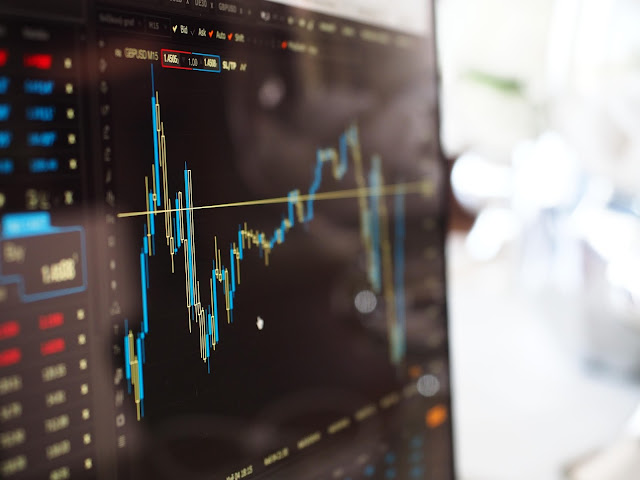Subscribe to:
Comments
(
Atom
)
A regular roundup of essential reading, useful for anyone interested in banking, financial market and economics
Social Media
Popular
-
Monday 7th November 2016 November 8th might just be a seminal moment for the world, not just markets ..... but we'll stick to mark...
-
Wednesday 2nd November 2016 Some pre-election jitters and a big day for the Fed (well, sort of .....) ref:- "Yellen cling...
-
Monday 24th October 2016 Someone's been dealing out the happy pills over the weekend ..... but not to everyone. ref :- "E...
-
Tuesday 15th November 2016 Just buy the Dollar and shut your eyes? If only it was that simple ..... ref:- "Dollar emerges...
-
What's Marshal Foch got to do with the value of Sterling ? ref :- "Morgan Stanley sees brighter outlook for sterling...
Recent
4/recent-posts
Comments
3/Comments
Categories
- Bllomberg
- Bloombe
- Bloomberg markets
- brexit
- cash
- china
- Courses
- currency
- debt
- European
- Eurozone
- Federal
- Finance and Economics
- financial markets training
- Financial Modelling Training
- financial news update
- Financial News Updates
- Financial Training
- France
- French Election
- Germany
- gold
- Greece
- Index
- Markets and Investing
- News
- nuclear
- oil
- PM
- Politics
- Portfolio Insurance
- Prime Minister
- rates
- Round-up
- sterling
- Stocks
- The Economist
- The Financial Times
- Trump
- UK
- US
- US President
- Videos
- Wall St. Journal
- Wall Street Journal
- Youtube
Blog Archive
-
►
2021
(33)
- ► 11/21 - 11/28 (1)
- ► 11/07 - 11/14 (1)
- ► 10/24 - 10/31 (1)
- ► 10/17 - 10/24 (1)
- ► 10/10 - 10/17 (1)
- ► 10/03 - 10/10 (2)
- ► 09/19 - 09/26 (2)
- ► 09/05 - 09/12 (2)
- ► 08/29 - 09/05 (2)
- ► 08/22 - 08/29 (2)
- ► 08/15 - 08/22 (1)
- ► 08/08 - 08/15 (1)
- ► 08/01 - 08/08 (1)
- ► 07/18 - 07/25 (2)
- ► 07/11 - 07/18 (1)
- ► 06/27 - 07/04 (1)
- ► 06/20 - 06/27 (1)
- ► 06/06 - 06/13 (2)
- ► 05/30 - 06/06 (1)
- ► 05/23 - 05/30 (2)
- ► 05/16 - 05/23 (1)
- ► 05/09 - 05/16 (1)
- ► 05/02 - 05/09 (2)
- ► 02/28 - 03/07 (1)
-
►
2020
(9)
- ► 03/08 - 03/15 (2)
- ► 03/01 - 03/08 (2)
- ► 02/23 - 03/01 (2)
- ► 02/16 - 02/23 (1)
- ► 01/12 - 01/19 (1)
- ► 01/05 - 01/12 (1)
-
►
2019
(58)
- ► 12/29 - 01/05 (1)
- ► 12/08 - 12/15 (1)
- ► 12/01 - 12/08 (2)
- ► 11/17 - 11/24 (2)
- ► 11/10 - 11/17 (2)
- ► 10/27 - 11/03 (2)
- ► 10/13 - 10/20 (1)
- ► 10/06 - 10/13 (1)
- ► 09/29 - 10/06 (2)
- ► 09/22 - 09/29 (1)
- ► 09/15 - 09/22 (1)
- ► 09/08 - 09/15 (1)
- ► 09/01 - 09/08 (2)
- ► 08/25 - 09/01 (1)
- ► 08/18 - 08/25 (2)
- ► 08/11 - 08/18 (1)
- ► 08/04 - 08/11 (2)
- ► 07/28 - 08/04 (2)
- ► 07/21 - 07/28 (1)
- ► 07/14 - 07/21 (1)
- ► 07/07 - 07/14 (2)
- ► 06/30 - 07/07 (1)
- ► 06/23 - 06/30 (2)
- ► 06/16 - 06/23 (1)
- ► 06/02 - 06/09 (2)
- ► 05/26 - 06/02 (2)
- ► 05/19 - 05/26 (2)
- ► 05/12 - 05/19 (1)
- ► 05/05 - 05/12 (2)
- ► 04/28 - 05/05 (1)
- ► 04/21 - 04/28 (1)
- ► 04/14 - 04/21 (1)
- ► 04/07 - 04/14 (1)
- ► 03/24 - 03/31 (1)
- ► 03/17 - 03/24 (2)
- ► 03/10 - 03/17 (1)
- ► 03/03 - 03/10 (2)
- ► 02/24 - 03/03 (2)
- ► 02/10 - 02/17 (1)
- ► 01/13 - 01/20 (1)
-
►
2018
(93)
- ► 12/30 - 01/06 (1)
- ► 12/16 - 12/23 (1)
- ► 12/09 - 12/16 (1)
- ► 12/02 - 12/09 (2)
- ► 11/25 - 12/02 (2)
- ► 11/18 - 11/25 (2)
- ► 11/11 - 11/18 (3)
- ► 11/04 - 11/11 (2)
- ► 10/28 - 11/04 (3)
- ► 10/21 - 10/28 (1)
- ► 10/14 - 10/21 (2)
- ► 10/07 - 10/14 (2)
- ► 09/30 - 10/07 (1)
- ► 09/23 - 09/30 (3)
- ► 09/16 - 09/23 (1)
- ► 09/09 - 09/16 (1)
- ► 09/02 - 09/09 (2)
- ► 08/26 - 09/02 (3)
- ► 08/19 - 08/26 (2)
- ► 08/12 - 08/19 (3)
- ► 08/05 - 08/12 (2)
- ► 07/22 - 07/29 (3)
- ► 07/15 - 07/22 (1)
- ► 07/08 - 07/15 (3)
- ► 07/01 - 07/08 (3)
- ► 06/24 - 07/01 (2)
- ► 06/17 - 06/24 (1)
- ► 06/10 - 06/17 (3)
- ► 06/03 - 06/10 (3)
- ► 05/27 - 06/03 (3)
- ► 05/20 - 05/27 (4)
- ► 05/13 - 05/20 (2)
- ► 05/06 - 05/13 (2)
- ► 04/22 - 04/29 (3)
- ► 04/15 - 04/22 (2)
- ► 04/08 - 04/15 (3)
- ► 04/01 - 04/08 (2)
- ► 03/25 - 04/01 (2)
- ► 03/18 - 03/25 (3)
- ► 03/11 - 03/18 (2)
- ► 03/04 - 03/11 (3)
- ► 01/14 - 01/21 (1)
- ► 01/07 - 01/14 (2)
-
▼
2017
(124)
- ► 12/31 - 01/07 (2)
- ► 12/17 - 12/24 (1)
- ► 12/10 - 12/17 (3)
- ► 12/03 - 12/10 (2)
- ► 11/26 - 12/03 (2)
- ► 11/19 - 11/26 (3)
- ► 11/12 - 11/19 (3)
- ▼ 11/05 - 11/12 (3)
- ► 10/29 - 11/05 (4)
- ► 10/22 - 10/29 (3)
- ► 10/15 - 10/22 (2)
- ► 10/08 - 10/15 (3)
- ► 10/01 - 10/08 (4)
- ► 09/24 - 10/01 (3)
- ► 09/17 - 09/24 (2)
- ► 09/10 - 09/17 (3)
- ► 09/03 - 09/10 (3)
- ► 08/27 - 09/03 (1)
- ► 08/20 - 08/27 (3)
- ► 08/13 - 08/20 (2)
- ► 08/06 - 08/13 (2)
- ► 07/23 - 07/30 (2)
- ► 07/16 - 07/23 (2)
- ► 07/09 - 07/16 (1)
- ► 07/02 - 07/09 (2)
- ► 06/25 - 07/02 (2)
- ► 06/18 - 06/25 (2)
- ► 06/11 - 06/18 (1)
- ► 06/04 - 06/11 (4)
- ► 05/28 - 06/04 (2)
- ► 05/21 - 05/28 (4)
- ► 05/14 - 05/21 (3)
- ► 04/23 - 04/30 (1)
- ► 04/16 - 04/23 (2)
- ► 04/09 - 04/16 (2)
- ► 04/02 - 04/09 (4)
- ► 03/26 - 04/02 (3)
- ► 03/19 - 03/26 (2)
- ► 03/12 - 03/19 (4)
- ► 03/05 - 03/12 (3)
- ► 02/26 - 03/05 (3)
- ► 02/19 - 02/26 (3)
- ► 02/12 - 02/19 (3)
- ► 02/05 - 02/12 (4)
- ► 01/15 - 01/22 (5)
- ► 01/08 - 01/15 (2)
- ► 01/01 - 01/08 (4)
-
►
2016
(139)
- ► 12/18 - 12/25 (1)
- ► 12/11 - 12/18 (3)
- ► 12/04 - 12/11 (4)
- ► 11/27 - 12/04 (3)
- ► 11/20 - 11/27 (1)
- ► 11/13 - 11/20 (3)
- ► 11/06 - 11/13 (4)
- ► 10/30 - 11/06 (4)
- ► 10/23 - 10/30 (3)
- ► 10/16 - 10/23 (3)
- ► 10/09 - 10/16 (3)
- ► 10/02 - 10/09 (4)
- ► 09/25 - 10/02 (3)
- ► 09/18 - 09/25 (5)
- ► 09/11 - 09/18 (3)
- ► 09/04 - 09/11 (3)
- ► 08/28 - 09/04 (3)
- ► 08/14 - 08/21 (3)
- ► 08/07 - 08/14 (4)
- ► 07/24 - 07/31 (4)
- ► 07/17 - 07/24 (2)
- ► 07/10 - 07/17 (2)
- ► 07/03 - 07/10 (4)
- ► 06/26 - 07/03 (3)
- ► 06/19 - 06/26 (3)
- ► 06/12 - 06/19 (2)
- ► 06/05 - 06/12 (2)
- ► 05/29 - 06/05 (3)
- ► 05/01 - 05/08 (1)
- ► 04/24 - 05/01 (4)
- ► 04/17 - 04/24 (3)
- ► 04/10 - 04/17 (3)
- ► 04/03 - 04/10 (4)
- ► 03/27 - 04/03 (3)
- ► 03/20 - 03/27 (3)
- ► 03/13 - 03/20 (2)
- ► 03/06 - 03/13 (4)
- ► 02/28 - 03/06 (5)
- ► 02/21 - 02/28 (3)
- ► 02/14 - 02/21 (4)
- ► 02/07 - 02/14 (2)
- ► 01/17 - 01/24 (3)
- ► 01/10 - 01/17 (5)
- ► 01/03 - 01/10 (5)
-
►
2015
(162)
- ► 12/13 - 12/20 (3)
- ► 12/06 - 12/13 (1)
- ► 11/29 - 12/06 (4)
- ► 11/22 - 11/29 (3)
- ► 11/15 - 11/22 (3)
- ► 11/08 - 11/15 (4)
- ► 11/01 - 11/08 (4)
- ► 10/25 - 11/01 (3)
- ► 10/18 - 10/25 (4)
- ► 10/11 - 10/18 (2)
- ► 10/04 - 10/11 (2)
- ► 09/27 - 10/04 (3)
- ► 09/20 - 09/27 (2)
- ► 09/13 - 09/20 (5)
- ► 09/06 - 09/13 (2)
- ► 08/30 - 09/06 (4)
- ► 08/23 - 08/30 (3)
- ► 08/16 - 08/23 (4)
- ► 08/09 - 08/16 (3)
- ► 08/02 - 08/09 (5)
- ► 07/26 - 08/02 (4)
- ► 07/19 - 07/26 (4)
- ► 07/05 - 07/12 (5)
- ► 06/28 - 07/05 (2)
- ► 06/21 - 06/28 (2)
- ► 06/14 - 06/21 (3)
- ► 06/07 - 06/14 (5)
- ► 05/31 - 06/07 (4)
- ► 05/24 - 05/31 (3)
- ► 05/17 - 05/24 (3)
- ► 05/10 - 05/17 (4)
- ► 05/03 - 05/10 (6)
- ► 04/26 - 05/03 (7)
- ► 04/19 - 04/26 (6)
- ► 04/12 - 04/19 (9)
- ► 04/05 - 04/12 (4)
- ► 03/29 - 04/05 (4)
- ► 03/22 - 03/29 (4)
- ► 03/15 - 03/22 (6)
- ► 03/08 - 03/15 (2)
- ► 03/01 - 03/08 (6)
- ► 02/22 - 03/01 (3)
- ► 02/15 - 02/22 (2)
Tags
Bllomberg
Bloombe
Bloomberg markets
brexit
cash
china
Courses
currency
debt
European
Eurozone
Federal
Finance and Economics
financial markets training
Financial Modelling Training
financial news update
Financial News Updates
Financial Training
France
French Election
Germany
gold
Greece
Index
Markets and Investing
News
nuclear
oil
PM
Politics
Portfolio Insurance
Prime Minister
rates
Round-up
sterling
Stocks
The Economist
The Financial Times
Trump
UK
US
US President
Videos
Wall St. Journal
Wall Street Journal
Youtube
Contact Form
Recent in Updates
4/recent-posts
Popular Posts
-
Monday 7th November 2016 November 8th might just be a seminal moment for the world, not just markets ..... but we'll stick to mark...
-
Wednesday 2nd November 2016 Some pre-election jitters and a big day for the Fed (well, sort of .....) ref:- "Yellen cling...
-
Monday 24th October 2016 Someone's been dealing out the happy pills over the weekend ..... but not to everyone. ref :- "E...
Created By Sora Templates & Blogger Templates
BG Consulting. Powered by Blogger.




